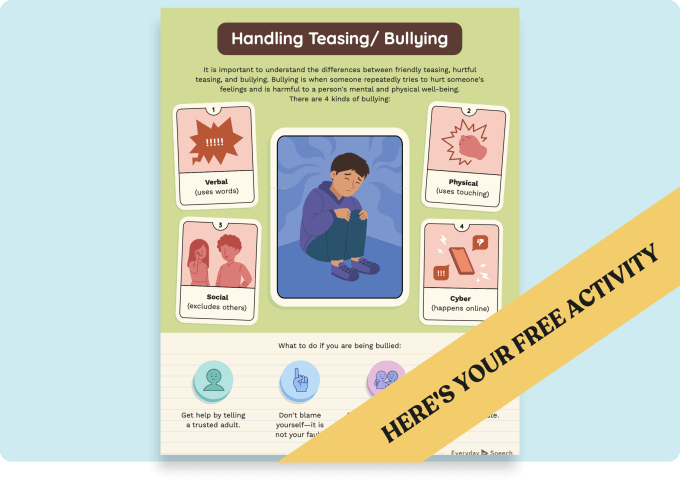Teaching Elementary Students the Importance of Answering Questions
Get free social skills materials
No-prep lessons on self-regulation, emotional recognition, conversation skills, and more.
Sign up hereIntroduction
Effective communication is a fundamental aspect of Social-Emotional Learning (SEL). One key aspect of communication is teaching elementary students the importance of answering questions when asked. By doing so, they learn to be more considerate, respectful, and foster a positive environment for social interactions. This blog post will discuss an easy-to-implement activity that requires no preparation, followed by discussion questions, related skills, and next steps to further enhance students’ SEL development.
No-Prep Activity: The Question-Answer Game
This simple activity encourages students to practice answering questions when asked, even if they don’t know the answer or don’t feel like responding. The educator can start by gathering the students in a circle. The educator will then ask a student a question, and the student must answer the question as best as they can. If the student doesn’t know the answer, they should say, “I don’t know, but I’ll try to find out.” The student then asks a question to another classmate, and the process continues until everyone has had a turn.
Discussion Questions
- Why is it important to answer someone’s question, even if you don’t know the answer or don’t feel like responding?
- How do you think others feel when their questions are ignored or not answered properly?
- Can you think of a time when someone didn’t answer your question? How did it make you feel?
- What strategies can you use to remind yourself to answer questions when asked?
- Why is it important to consider the feelings of others when communicating?
Related Skills
Teaching students the importance of answering questions is just one aspect of effective communication and SEL. Other related skills that can further develop students’ social and emotional competence include:
- Active listening: Encouraging students to attentively listen to the speaker and respond appropriately.
- Empathy: Teaching students to understand and share the feelings of others, fostering a supportive environment.
- Respectful communication: Demonstrating how to communicate respectfully and considerately, even when disagreeing.
- Assertiveness: Guiding students on how to express their thoughts and feelings confidently and respectfully.
- Conflict resolution: Providing tools for students to resolve disagreements peacefully and constructively.
Next Steps
As educators, it’s essential to continuously develop and reinforce SEL skills in our students. Teaching the importance of answering questions is just the beginning. To help you further support your students’ social and emotional growth, sign up for free samples of related skill-building materials and activities at Everyday Speech. These resources will provide you with the tools you need to create a positive and supportive learning environment for your students.

